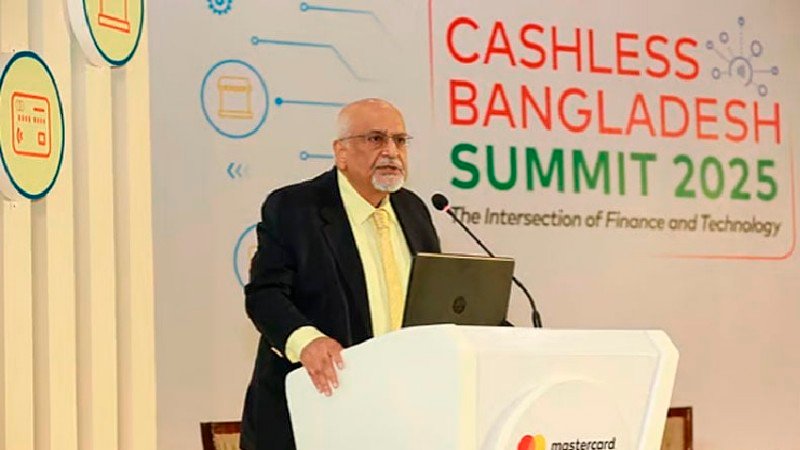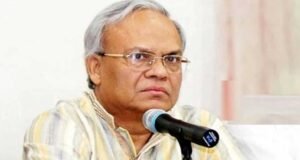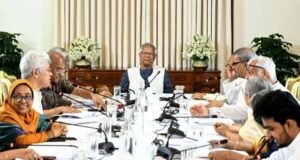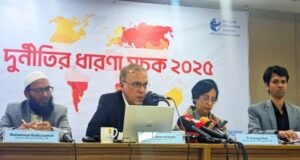
Debapriya Bhattacharya, distinguished fellow at Centre for Policy Dialogue (CPD), has cautioned that the pursuit of a cashless economy in Bangladesh must not result in an “income-less economy.”
He emphasised the need for careful planning and inclusive implementation so that digital transformation benefits all, particularly those in the informal economy.
Speaking at “Cashless Bangladesh Summit 2025” held at Sonargaon Hotel in Dhaka on Wednesday, Debapriya highlighted the importance of creating a separate framework for the private sector and called on political parties to include the vision of a cashless economy in their election manifestos.
The summit was jointly organised by Mastercard and Institute of Cost and Management Accountants of Bangladesh (ICMAB).
He acknowledged recent steps taken by government to promote digital transactions, such as amending public procurement laws, revising revenue policies, introducing the Cyber Security Ordinance and the Personal Data Protection Act and pushing forward the establishment of a digital bank.
He noted that Bangladesh Bank has set a target to make 75 percent of all financial transactions digital within the next five years.
However, he pointed out that achieving this target will require addressing several major challenges.
These include simplifying regulatory policies, overcoming bureaucratic complexities and resolving infrastructure weaknesses.
He also stressed the importance of diversifying the payment ecosystem and expanding mobile financial services beyond basic cash-in and cash-out functions, so that they are adopted more widely in informal sectors such as roadside vendors and small-scale enterprises.
Debapriya recommended developing a structured policy proposal by consolidating existing advice on the issue, integrating the Planning Commission into a coordinated national action plan and establishing a task force under Bangladesh Bank to monitor and evaluate progress.
He concluded by stressing that a successful transition to a cashless economy will depend on the combined efforts of banks, financial institutions, fintech companies, telecom operators and the private sector, all working together to ensure financial inclusion for every citizen.
 Weekly Bangla Mirror | Bangla Mirror, Bangladeshi news in UK, bangla mirror news
Weekly Bangla Mirror | Bangla Mirror, Bangladeshi news in UK, bangla mirror news







